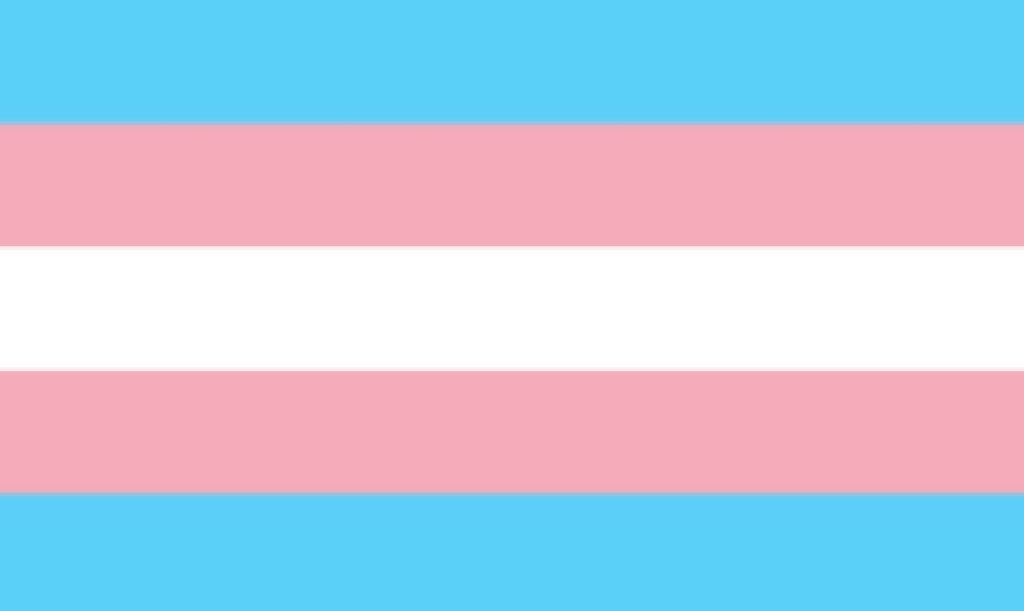Trans Children & Pathologisation in the UK
by Cal Horton, University of Goldsmiths, London, UK · Published · Updated

What happens when a society, backed by powerful institutions, media and majority culture designates a minority population as inherently disordered? When that categorisation and stigma is weaponised to legitimise abuse and discrimination? A new study highlights the legacy of one example of such pathologisation, focusing on transgender children in the UK.
Introduction
Across the globe, growing numbers of transgender (trans) children are being supported to live authentically in childhood. Global healthcare consensus now recognises trans identities, including in childhood, as an expected and valued part of human diversity. Where in the past childhood non-conformity was pathologised as ‘disordered’, with trans and gender diverse children routinely subjected to coercive and harmful conversion practices, modern research endorses the importance of childhood acceptance and support for trans children.
In January 2022 the World Health Organisation removed transgender identities from categorisation as a mental health disorder, marking a significant global shift from the pathologisation of gender diversity. However, a legacy of pathologisation of trans identities continues to impact on trans lives, particularly on trans children. New research published in Children and Society examines how pathologisation continues to impact on trans children’s lives in the UK, drawing attention to continued harms, and reflecting on priorities and institutional responsibilities for depathologisation of trans children.
Pathologisation
Pathologisation is a term used to describe the manner in which non-standard identities are defined by authorities as being medically disordered. For example, homosexuality was designated a mental disorder by the World Health Organisation up until 1973, with this classification legitimising societal prejudice and discrimination. Gender diversity remained explicitly categorized as disordered and pathological in international medical standards like the World Health Organisation’s International Classification of Disease (ICD) right up until the latest version, ICD-11, that came into effect in January 2022. Prior to that, childhood gender diversity was considered pathological, with ‘Gender Identity Disorder of Childhood’ categorized in a chapter on mental and behavioural disorders.
Assumptions that poor mental health were intrinsic to mentally disordered gender minorities, meant that efforts to ‘help’ such minorities focused on harmful attempts to suppress or change their identity, rather than efforts to tackle areas of discrimination or persecution. Pathologising gender clinicians deemed it easier and better to (try to) change a child’s identity or expression, than to reform wider society to be accepting of diversity (Gill-Peterson, 2018).
Movement for Depathologisation
Across the twentieth century and into the present, trans communities from around the world have fought against pathologisation. Depathologisation refers to “the removal of diagnostic classification and clinical practices that conceptualise sexual, gender and bodily diversity as a mental disorder, illness or malformation”, alongside recognition of diversity as a human right worthy of celebration (Suess Schwend et al., 2018, p. 1594). Human rights advocates have emphasised that “medical professionals, policy makers, academics and practitioners have a duty to end the pathologisation” of trans identities (Inch, 2016, p. 193). Research has shown that the belief that trans people are mentally ill is the most powerful factor underpinning anti-trans prejudice, with continuing pathologisation legitimising and reinforcing discrimination (Winter et al., 2009).
There has been some progress in a movement towards depathologisation over the past decade, particularly within some areas of healthcare policy. Gender affirmative approaches that celebrate diversity have been endorsed by leading global and national healthcare bodies. In January 2022 the World Health Organisation (in ICD-11) removed transgender identities from categorisation as a mental health disorder, marking a significant global shift from the pathologisation of gender diversity.
As ICD-11 comes into effect from January 2022, healthcare bodies across the globe are now tasked with putting this paradigm shift into policy and practice (World Health Organisation, 2021). Depathologisation at the global level of the World Health Organisation will only be a significant step towards meaningful depathologisation if that global policy change feeds into national and sub-national policies, attitudes and practices (Murray, 2019b). O’Connor emphasises that “although psycho-pathologisation of trans people is due to be removed from the ICD of the WHO, it will take longer to change social, political and medical systems that continue to pathologise trans people” (2019, para. 8).
UK Context
Even as global medical consensus has moved towards trans positivity, affirming childhood gender diversity as a part of human diversity to be celebrated, the legacy of pathologisation remains. Murray (2019b, sec. 5) describes the continued influence of pathologisation on current UK and Irish trans healthcare services as “an echo of that dark past”, noting that “the continued treatment of trans identity as a mental health condition harms our communities, young and old”. Examples of pathologisation can be seen in UK media discourse around trans youth, with terminology describing trans-ness as a ‘plague’, ‘epidemic’ or talking of ‘contagion’. Language of transness as an epidemic or as a problem may be regarded as an indicator of embedded pathologisation and trans-negativity in UK society.
A paradigm shift from childhood gender diversity as pathologised and problematic to childhood gender diversity as a valued or celebrated part of human diversity has profound implications for UK social policy across diverse spheres. With ICD-11 now in effect (from January 2022), it is vital for us to understand how decades of trans pathologisation have shaped UK society, and how such pathologisation manifests in the lives of trans children in the UK today. Such analysis can shine a light on areas of enduring pathologisation of trans children, helping identify priorities for embedding depathologisation in UK social policy and practice.
Research Focus: A new study published in Children and Society aimed to increase understanding of ongoing experiences of pathologisation in the UK. The study focused on parents with experience raising a pre-pubertal trans child in the UK, a group with a unique window into how childhood transitude is viewed across UK society. The study asked:
1) How do families with trans children experience pathologisation of childhood transitude?
2) What implications do experiences of pathologisation have for UK policy and practice?
Methodology:30 UK parents were interviewed sharing their experiences raising 30 socially transitioned trans children. Here ‘social transition’ signifies family support for a child’s identity, commonly accompanied by a change in pronoun. The children in these families had socially transitioned at an average age of 7 years-old (range 3-10 years old), and at time of parental interview their children were on average age 11 years old (range 6-16 years old). Parental interviews covered a broad range of topics including experiences in families, education and healthcare. Data were analysed through reflexive thematic analysis (Braun & Clarke, 2006) with pathologisation identified as a key cross-cutting theme.
Findings:
The research highlights the harms that pathologisation imposes on trans children and their families, considering impacts at individual, institutional and societal levels.
Experiences with Individuals: Within families and local communities, parents encountered a large number of pathologising attitudes or assumptions about childhood gender diversity being a problem or a disorder. Pathologisation at individual level caused significant distress, rejection and isolation, causing family and community fracture.
Experiences with Institutions: At an institutional level, parents reported encounters with professionals who held pathologising attitudes about childhood transitude. Such professionals held positions of power and authority, with pathologisation at this level having significant impacts on trans children’s lives in spheres like education, law and healthcare. Families encountered professionals wanting a medical or psychiatric diagnosis before being willing to accept or respect the rights of trans children, or treating childhood transitude as a problem or safeguarding concern. In most cases, pathologising professional practice was not explicitly mandated or part of formal institutional policy. Rather, in the absence of de-pathologising institutional policy, professional practice was influenced by pathologising attitudes and assumptions.
Societal Pathologisation: At a systemic level, parents noted a lack of clear policy-level commitment to depathologisation of trans children. Without leadership and explicit commitment to depathologisation, parents felt un-supported in their efforts to challenge pathologising attitudes or practices at individual or institutional level. Parents raised frustration that they were left alone to advocate for depathologisation of trans children, without any systemic backing, in the face of entrenched society-wide pathologisation.
A failure of NHS leadership
Parents in this sample called into question why pathologisation appears to be so deeply entrenched in the UK, and why there appears to be little movement towards depathologisation of trans children. Parents specifically talked about what they saw as a failure in NHS leadership on the depathologisation of trans children. Parents contrasted embedded pathologisation in the UK with systemic (and healthcare-led) efforts to celebrate and normalise trans children in other countries. Interviewed parents felt the NHS and UK children’s gender services have failed to embrace or communicate a depathologisation agenda. Parents held this institutional failure responsible for legitimising and enabling the continued harm of pathologisation across the UK.
Conclusion
As commitments to trans depathologisation take effect in global healthcare policy, the pathway to depathologisation of trans children in practice across and beyond the UK is far from clear (Winters, 2022). Trans children need to be protected from ongoing pathologisation, necessitating proactive commitment, leadership and action. Trans depathologisation needs to be considered a critical priority for child rights and social justice.
For more information and the full list of references, please see the Open Access publication at Children and Society:
Horton, C. (2022). Depathologising Diversity: Trans Children and Families’ Experiences of Pathologisation in the UK. Children and Society.
For associated publications by the same author see: https://orcid.org/0000-0003-1944-4122




